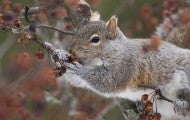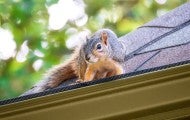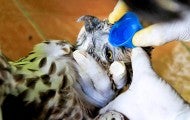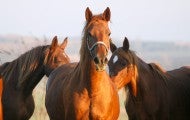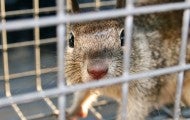Every day, more and more wildlife habitat is lost to the spread of development. Give a little back by building your own humane backyard! It doesn't matter whether you have a small apartment balcony, a townhouse with a sliver of ground, a suburban yard, a sprawling corporate property or a community...
It's common to see baby wild animals outside during spring as a new generation makes its way into the world. Sometimes you’ll even see these babies alone, with no parent in sight. For animal lovers, the instinct to help can be difficult to ignore. But unless the animal is truly orphaned or injured...
The Humane Society of the United States and the Humane Society Legislative Fund are noted champions for the protection and well-being of the nation’s wild horses and burros, and we have strong policy and practical commitments to the humane management of their herds on America’s Western ranges. We...
A raccoon in the chimney, a groundhog under the shed, a skunk under the back porch … when confronted with wildlife living up-close in their own homes or backyards, well-meaning but harried homeowners often resort to what they see as the most humane solution—live-trapping the animal and then setting...
Fertility control: Essential to American wild burros and mustangs While wild burros are legally viewed in the same light as the American mustang, protected as a living symbol of the American West, the wild horses often seem to receive most of the public's attention. But burros have played a critical...
